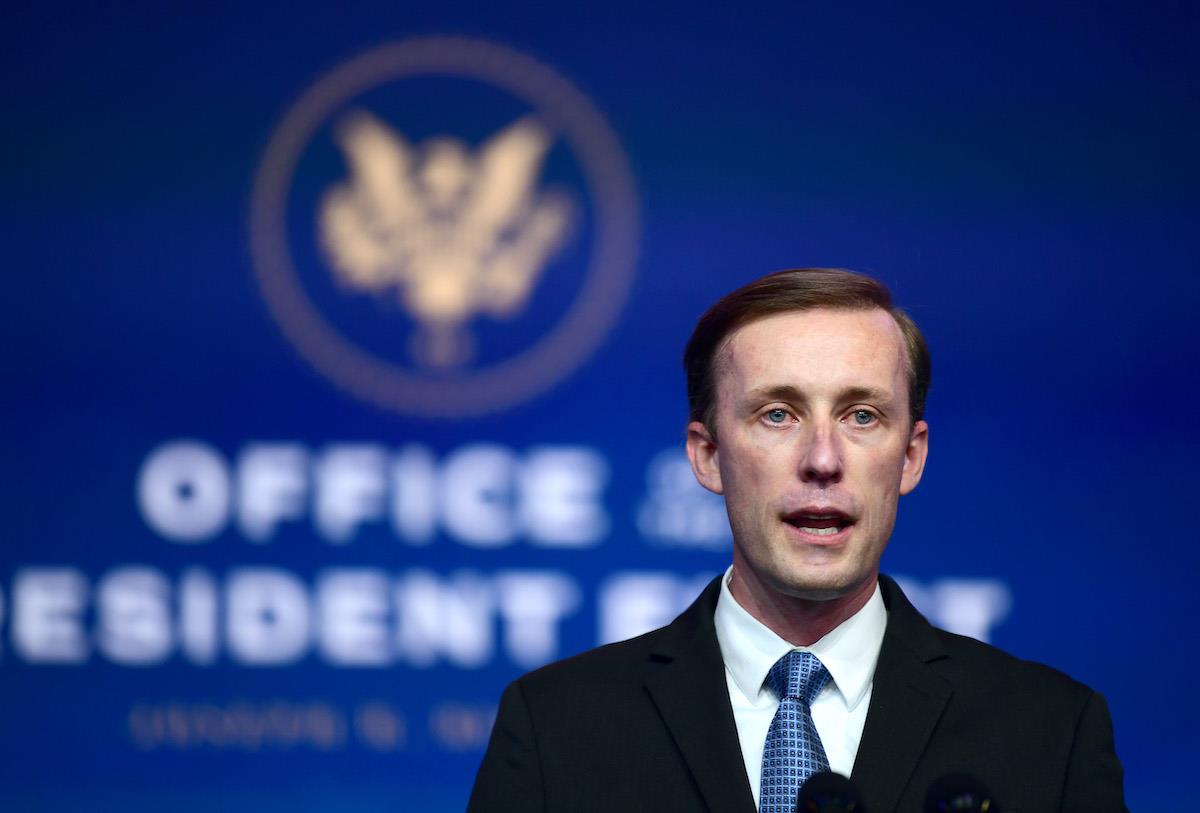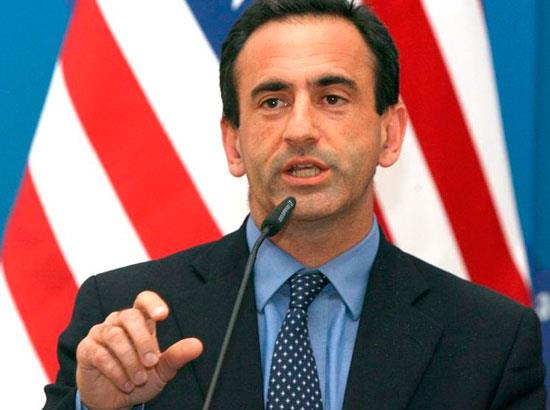(MENAFN- Asia Times)
Turmoil and staff exodus has become the rule rather than the exception in the Office of the Vice President since its 49th occupant, Kamala Harris, was sworn in on January 20, 2021.
In the 17 months since Harris ascended to the nation's second highest office, she has faced criticism on various fronts, with brickbats thrown in particular at her public persona and perceived lack of management skills.
Those criticisms are becoming all the more concerning given her boss's age, obvious fragility and cognitive decline.
In the history of the United States, only eight vice presidents have ascended to the Oval Office due to the death of the incumbent. Only three have served in a temporary acting capacity as required under the 25th amendment. Harris is one of them.
With speculation swirling around the president's physical and mental health, questions are beginning to rise over what a Harris foreign policy might look like in the event that Biden does not live out his term of office.
In this regard, Harris is something of a wildcard. Her record in the Senate showed that she is basically a standard issue liberal hawk.
Yet the national security team she has assembled around her as vice president is in many ways preferable to Biden's, which has deep ties to the Clinton machine and remains wedded to liberal interventionist ideology that has been responsible for so many of the failures and debacles of US foreign policy witnessed in the 30 years since Bill Clinton took office.
Since March, Harris' national security team has been quietly steered by a pair of international relations scholar-practitioners, namely national security adviser Philip H Gordon and his deputy Rebecca Lissner.
Gordon and Lissner have credentials that arguably exceed Biden's own top national security staffer, the ambitious political climber Jake Sullivan. Like the 'company men ' Biden has surrounded himself, they are competent and (mostly) conventional.

National Security Advisor nominee Jake Sullivan after being introduced by President-elect Joe Biden on November 24, 2020, in Wilmington, Delaware. Sullivan recently outlined the new administration's foreign policies in an interview with CNN. Photo: AFP / Mark Makela / Getty Images
Gordon is Harris's second national security advisor in 18 months and Lissner recently joined her staff after a stint on the Biden National Security Council (NSC) where she reportedly ran the Russia Strategy Group, which was charged with plotting the administration's response to the Russian military build-up along the Ukraine border in late 2021.
A protege of Biden Homeland Security Adviser Elizabeth Sherwood-Randall, a former deputy secretary of energy who has long been among of the most respected national security professionals in Washington, Lissner is the author of the well-received Wars of Revelation: The Transformative Effects of Military Intervention on Grand Strategy.
Gordon has had a long and distinguished career in the upper echelons of the US foreign policy establishment. He checks all the establishment boxes: a doctorate from the Johns Hopkins School of Advanced International Studies; a Brookings Institution fellowship; a Council on Foreign Relations fellowship; a well-received, slightly heterodox book, Losing the Long Game; and high-ranking appointments under both Clinton and Obama.
During the Obama administration, Gordon served as the assistant secretary of state for European and Eurasian Affairs during the tenure of secretary of state Hillary Clinton, in which capacity Gordon oversaw the administration's checkered but ultimately failed“reset” policy with Russia.
Gordon's departure from that office to assume the role of Middle East policy coordinator at the White House came to be a source of regret for those who placed their hopes in a more productive, less contentious US-Russia relationship.
Gordon's successor as assistant secretary, Victoria Nuland, the neoconservative former national security adviser to Dick Cheney, has turned out to be the worst possible choice at the worst possible time.
Gordon, unlike the cookie-wielding , regime change enthusiast Nuland, didn't seek to make waves. One high-ranking former colleague of Gordon's from the Clinton and Obama administrations praised him with faint praise, telling this reporter“He's competent and good-natured. Beyond this, nothing remarkable comes to mind.”
Gordon's time as Middle East policy coordinator on Obama's National Security Council was dominated by the war in Syria.

Philip Gordon in a file photo. Image: Facebook
At the time of Gordon's appointment, Ghaith Al-Omari, the executive director of the American Task Force on Palestine, commented that“Gordon understands the bureaucracy. He's a professional brought from the professional echelon to fill a professional job.”
In addition to bringing years of experience to the job, Gordon has also shown a willingness to occasionally buck the conventional wisdom that still holds so much of the Biden administration foreign policy team in its grip.
Gordon's tenure as Obama's NSC point-man on the Middle East coincided with deepening US intervention in Syria. In an interview in 2016 with the neoconservative careerist Jeffery Goldberg, Gordon said he wished Obama had bombed Assad for his alleged (though unproven) use of chemical weapons in 2013.
Yet, in his 2020 book, Losing the Long Game, Gordon seemed to have a change of heart on the wisdom of fomenting regime change in the region. What explains the change on Gordon's part?
Joshua Landis, the Sandra Mackey Chair and Director of the Center of Middle East Studies at the University of Oklahoma and among America's wisest Syria-watchers, told this report,“It was clear that had the US not pumped billions of dollars of arms and aid to the opposition and had it not encouraged the Turks, Saudis, Qataris and EU countries to do the same, the war would not have been as long or as destructive. Many fewer Syrians would have been killed or forced to flee their homes.”
“In his book, Losing the Long Game, Gordon makes this argument brilliantly and points out that the same is true for Afghanistan, Iraq and Libya. America's predictions about each of these countries turned out to be wrong.”
According to Landis, who is also a fellow at the Quincy Institute for Responsible Statecraft,“If Philip Gordon was wrong at the beginning of the Syrian war as well, he was in very good company.”
And that would seem to be fair enough. It would be an understatement to say that not everyone in the US foreign policy establishment is right most of the time. But Gordon has been righter than most.
Should Kamala Harris be sworn in as the 47th president of the US before January 20, 2025, she will hopefully have the good sense to elevate Gordon and his deputy Lissner, both of whom would arguably be a vast improvement over the current leadership of the current president's national security staff.
MENAFN23082022000159011032ID1104739353
Legal Disclaimer:
MENAFN provides the information “as is” without warranty of any kind. We do not accept any responsibility or liability for the accuracy, content, images, videos, licenses, completeness, legality, or reliability of the information contained in this article. If you have any complaints or copyright issues related to this article, kindly contact the provider above.